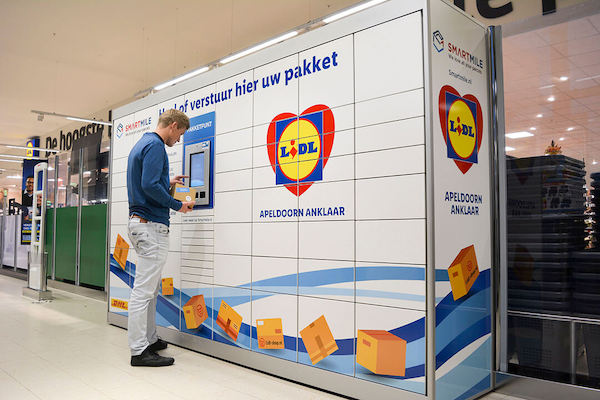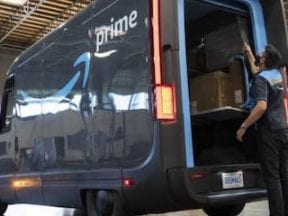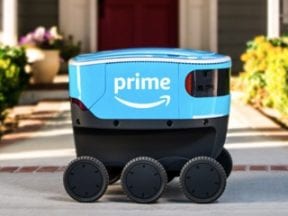The growth in ecommerce has fueled the demand for sophisticated delivery options.
Consumers are not always at home or at work to accept packages. Many seek contactless alternatives. Parcel pick-up facilities are increasingly common in malls, gas stations, transport hubs, and large retail stores. A driver can deliver multiple parcels to a secure location where recipients can collect their parcels at any time.
Pick-up facilities:
- Lessen the burdens of door-to-door delivery.
- Eliminate theft from so-called “porch pirates.”
- Save fuel and maintenance expenses.
- Reduce traffic and CO2 emissions.
In the U.S., FedEx, Amazon, UPS, DHL, and USPS together offer over 70,000 access points — drop boxes, carrier shipping centers, and third-party retail stores.
But smart lockers are driving much of the innovation in parcel delivery.
Smart Lockers
Smart lockers are similar to traditional mailboxes but with electronic access, security cameras, and cloud-based software. Online shoppers select lockers as the delivery method during the checkout and then receive access instructions — usually a QR or SMS code — to open the locker electronically.

Netherlands-based Smartmile provides smart lockers for delivery carriers and merchants. Image: Smartmile.
“Parcel lockers are becoming popular because of the convenience,” says Tessa English, director, industrial and logistics, at Jones Lang LaSalle, a global real estate services provider. “Consumers have more control over when they pick up their shopping, rather than having to wait for deliveries or risk parcels being left in the wrong place.”
Global Rollout
Singapore, at just 281 square miles, will have 1,000 smart locker stations by the end of 2021. China has over 800,000.
DHL has 340,000 lockers in Germany, accessible by 90% of the population, and more than 3,700 in Spain and Portugal.
Across Europe, retailers have partnered with logistics firms for delivery to lockers. Decathlon, the world’s largest sports retailer with 1,500 stores, recently signed deals with Cleveron and Cubee (part of Belgium’s Bpost, the national postal service) to install parcel lockers.
Other providers are emerging. Netherlands-based Smartmile offers a network of lockers that sync with retailers and carriers. Customers choose their preferred delivery option at checkout and then collect their items via a text message code from their selected parcel machine. Smartmile’s CEO and co-founder Aku Happo said, “Our goal is to offer customers an easy and sustainable way to receive, return and ship all of their parcels from one location. Parcel lockers offer a contactless and convenient way to do it and are preferred by customers.”
DSV, a Denmark-based global logistics company, has installed 400 smart locker banks in South Africa. Customers are notified by SMS and email when parcels are ready for collection and can access GPS maps for directions.
Even Smarter
Autonomous ground vehicles equipped with parcel lockers will likely become commonplace. AGVs can deliver parcels without human intervention. AGVs loaded with parcels could park in designated delivery districts and otherwise function like stationary lockers. AGVs could reduce the high rental cost of fixed lockers and even provide Sunday delivery.
Refrigerated lockers for food orders are coming. New residential developments will likely include a block of lockers accessible by all residents. The lockers will resemble postal mailboxes, just bigger, more secure, and made for shopping.





